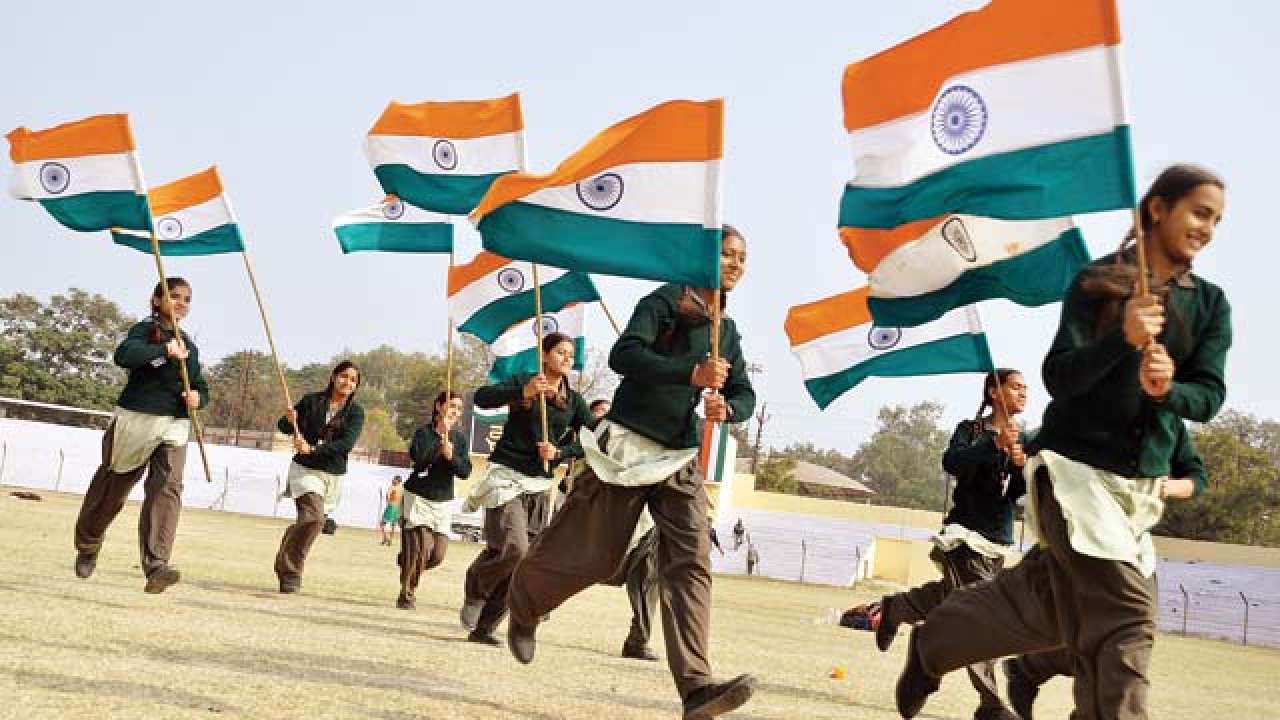
A national anthem, usually, is a patriotic musical arrangement that reflects and extols the history, culture, freedom movement, national identity, and sometimes faith of the citizens of a nation. It must be affirmed by the government of the nation. The oldest national anthem, Japan’s, is nearly 1,200 years old. Although the popularity of musical renditions of national anthems is only about a 150 years old, national anthems are recognised globally as an important symbol for a nation state today. In many situations, the anthem is symbolically used at international forums to demonstrate the international recognition of a given country.
In almost all countries certain etiquette is associated with the national anthem. Most countries expect citizens to stand up in a dignified posture for while the national anthem is being played or sung. Many countries even prescribe a code. For instance, US Federal Statute (36 US Code: 301) provides a detailed description of conduct during the national anthem. If national anthem etiquettes are common and widely accepted, then why has standing-up for the national anthem become a major issue in India?
I believe the reasons are simple. Political parties are attempting to politicise well-established national symbols. In other words, politicians and political parties are using national symbols as vehicles for furthering their agenda. The way I understand not standing for the National Anthem is being projected as a sign of opposition to the ruling party or to the government. This is indeed sad for the nation. Ironically, this has stirred up people to appeal to the most politically stagnant groups in the country. I don’t believe that politicians are attempting to disrespect the country, National Anthem, flag, and military by raking-up this issue. However, they are definitely trying to use this as a vehicle for pushing their agenda. This reflects very poorly on the political discourse in our country where we are using sacrosanct symbols to vent our dissatisfaction with some issues.
It would be useful to openly protest against caste, creed, criminal justice system, employment etc. However, it would be crude and even insulting to use the National Anthem as a vehicle for such protests. The National Anthem reflects our freedom struggle and the sacrifices of people who earned freedom for us. Please remember that the National Anthem is not a salutation or recognition of achievement of the government, but a show of respect to our national identity and our freedom struggle.
As far as standing up for the National Anthem before a movie is concerned, let us not be utilitarian for all things in life. Utilitarianism assesses a human action on the utility arising from it. Can we be utilitarian in every sphere of life? I will explain this with an analogy. If one gets up every morning and touches his/her mother’s feet, then should the person not do it when the family is vacationing in a tourist destination. Why should the place matter? If I touch my mother’s feet at home as a practice, then why not as a tourist on holiday?
Thus, standing up for the National Anthem may not bring actual utility to a citizen, but it must be done anyway. Else, we may have difficulty delineating between several life-situations such as marriage vs prostitution, patriotism vs jingoism, organ donation vs organ harvesting etc. I draw these analogies from the great works of Kant, Rawls, and Sandel, who clearly contend about the limits of utilitarianism.
Hence, should we allow those who share society’s prevailing moral position on any given issue to be put down by a small group of those who do not? I contend that arguments stemming from nationalistic conviction should be offered a special respect, not treated as meagre choices like that of movies, candy, or motorbikes.
My views find a basis in past literature in this domain. Drawing from Kant, in her seminal work published in Philosophy and Public Affairs, Pauline Kleingeld proffers three types of patriotism:
Civic patriotism: Arising from a shared sense of political freedom and shared view of institutions that endure the freedom in the nation. It arises from identification with and civic activity on behalf of the nation-state.
Nationalist patriotism: This arises not from citizenship to a nation-state, but from shared ancestry and ethnicity.
Trait-based patriotism: This is love of the country arising from some appealing characteristics of the nation.
Apparently, if one thinks through various cases on the patriotism debate in our country, it often partakes of mixtures of all three. However, in concurrence with the past work in this domain, civic patriotism dominates. In line with Kleingeld and Kant, I believe that civic patriotism is the only form of patriotism that remains consistently the duty of any citizen. Consequently, I suggest that for us to progress as a nation, we must have a shared view of national institutions, national symbols, and National Anthem.
The author is Director, IIM-Rohtak. Views expressed are personal.